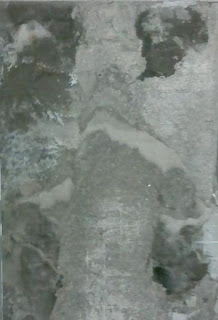I was filling the confidential history sheets of people working in my department. There are multiple items, with multiple choices for each. One has to select one of the choices. There is a column about the nature of the people. One of the options is 'cooperative'. That one started me thinking about a new thing: controlled noncooperation. A couple of examples should make this clear.
Once I had written about a management problem to one of the Deputy Deans of the institute. It was a serious problem, and required a solution quickly. The paper came back after four days. The concerned Deputy Dean had written 'I don't look after this work.' There was no mention of the person who looked after that work, though as Deputy Dean he should have been aware of the person whose job it was. Finally I had to write to the Dean to get that work done. I don't know who he was not cooperating with - me or that person whose job it was.
The other day, someone asked for information on child mortality in the institute. The request came through 'right to information act'. I assigned the job to a person who lookedafter this bit of information and had answered such questions in the past.
"We should not be giving this information" that person told me. 'The term children includes a lot of age groups, while we have only newborns."
"I understand. Let us provide information about newborns, and tell them collect information from departments of neonatology and pediatrics about deaths of other age group children."
The concerned person went away unhappy. When I received the paper for signature, it had information about neonatal deaths, and a note stating information about other children's deaths should be obtained from other departments. I could not do what this person had done. So I cancelled the word 'other' and put pediatrics and neonatology there, and sent that letter. I wonder who this person was not cooperating with, me or the information officer. When I was talking to someone about this, I suddenly remembered that this non-cooperator's previous boss used to behave similarly. When we had needed a computer scanner for our department, I had asked this boss to process for one, because the Dean had assigned the job of looking after computers to her. She had written a letter to the engineers stating 'provide us with a scanner' in just one line. There was no mention of what sort of scanner was needed - computer scanner, CT scanner, MRI scanner, ultrasonoic scanner or any other. Obviously there were no technical specifications attached, as was a standard requirement when procuring any equipment. I had to throw away that letter and do the whole thing myself. I got a scanner, as I knew I could. But if I had to do all the work, were these non-cooperators there just for a salaried ride?
Now I think the concept of controlled noncooperation should be clear. It means not to cooperate while giving the impression that one is cooperating.

